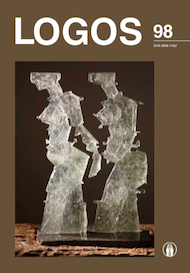TAPATYBĖS PROBLEMA ANKSTYVOJOJE W. J. SCHELLINGO FILOSOFIJOJE
PROBLEM OF IDENTITY IN THE EARLY SCHELLING’S PHILOSOPHY
Author(s): Paulius KukisSubject(s): Metaphysics, 19th Century Philosophy, German Idealism, 18th Century
Published by: Visuomeninė organizacija »LOGOS«
Keywords: Schelling; identity; absolute I; German idealism; synthesis;
Summary/Abstract: The aim of this article is to delineate the significance of the problematic concept of identity in early Schelling’s philosophy. By analysing the concept of identity in two of his early treatises published between 1794 and 1795, we see that first of all he treats Fichtean thetic judgment of identity as problematic. Then Schelling interprets the concept of identity as a substance and at the same time he tries to introduce synthesis in thetic nature of the “absolute I”. For Schelling, the concept of unconditional identity of “absolute I” is too shallow in its analytical dimension. It needs to be broadened in the ways which are not peculiar to transcendental idealism. This becomes an incentive to formulate a need to seek his own goals in classical German philosophy and those were inseparable from the way he treated the problematic concept of identity. As early as 1797 he introduces new philosophical projects like the philosophy of nature and his own later version of transcendental idealism.
Journal: LOGOS - A Journal of Religion, Philosophy, Comparative Cultural Studies and Art
- Issue Year: 2019
- Issue No: 98
- Page Range: 195-207
- Page Count: 13
- Language: Lithuanian

